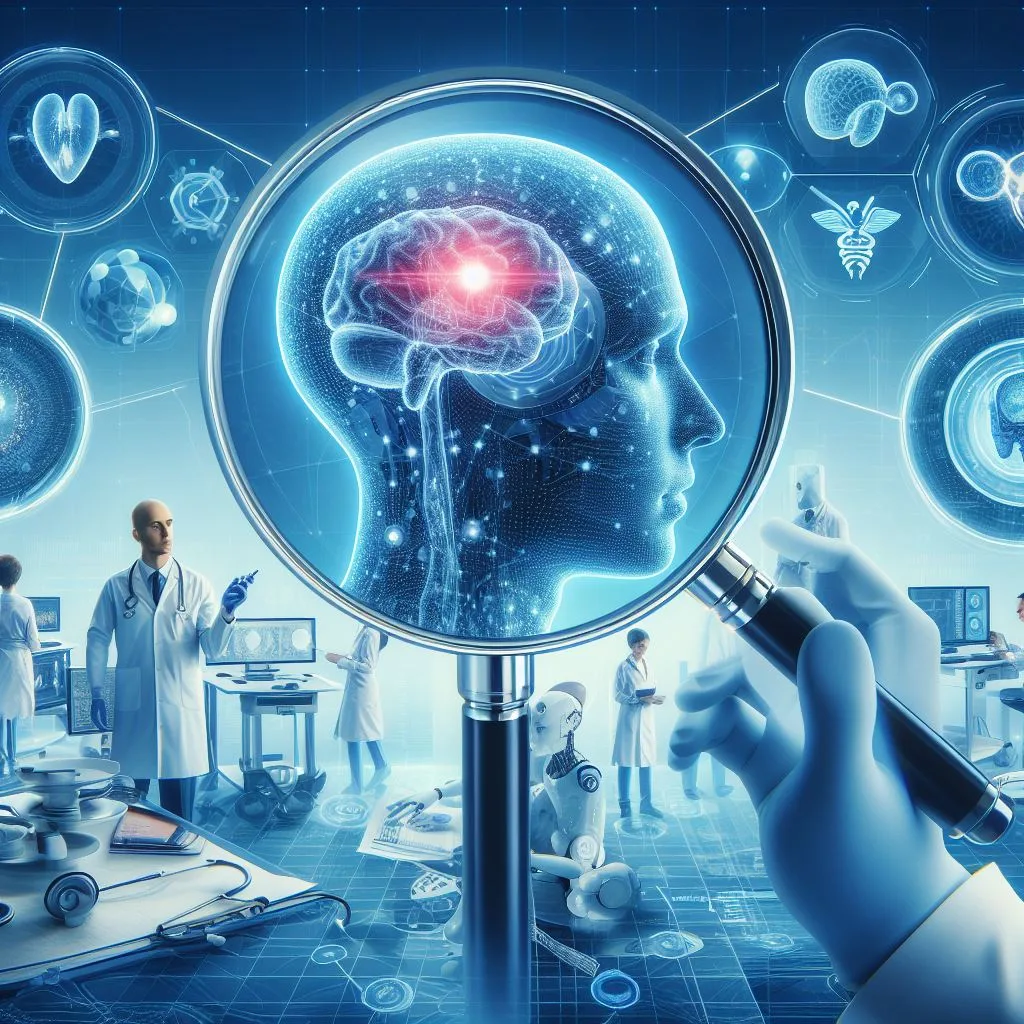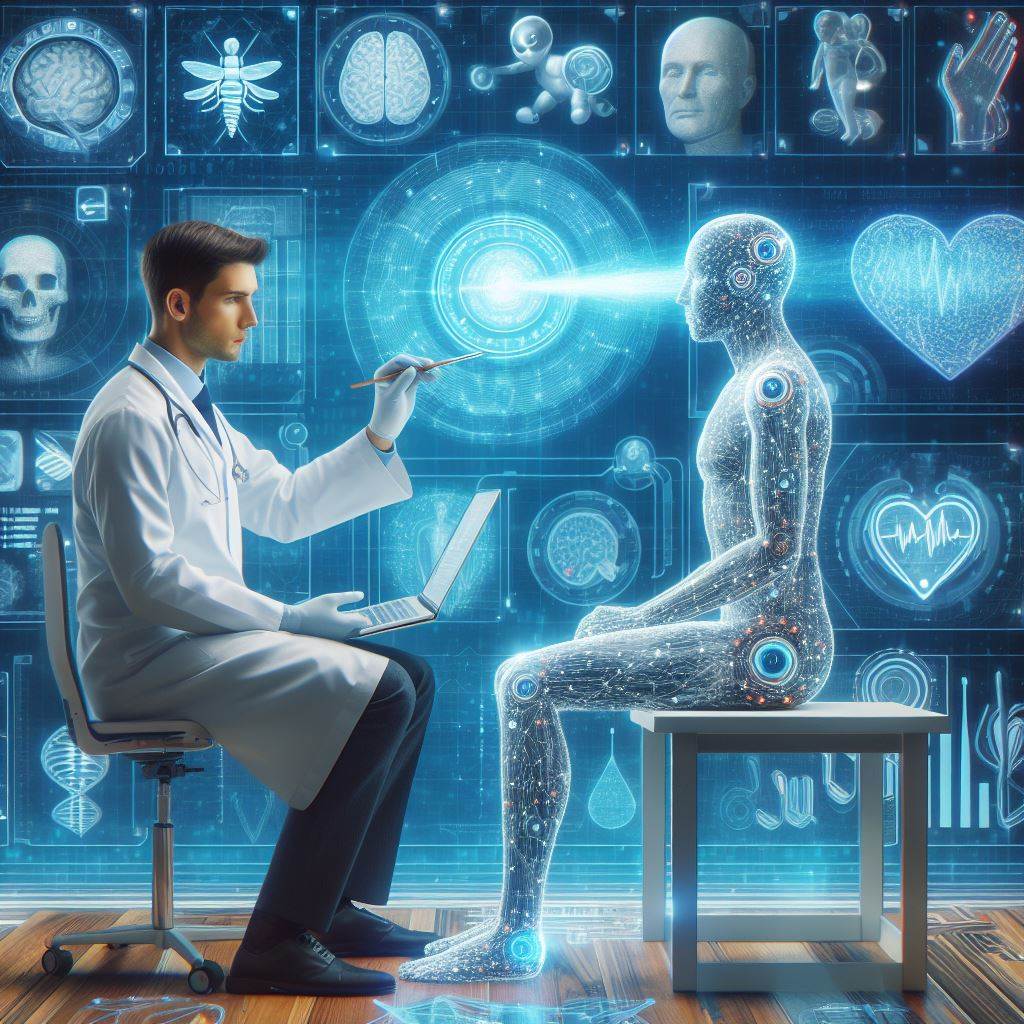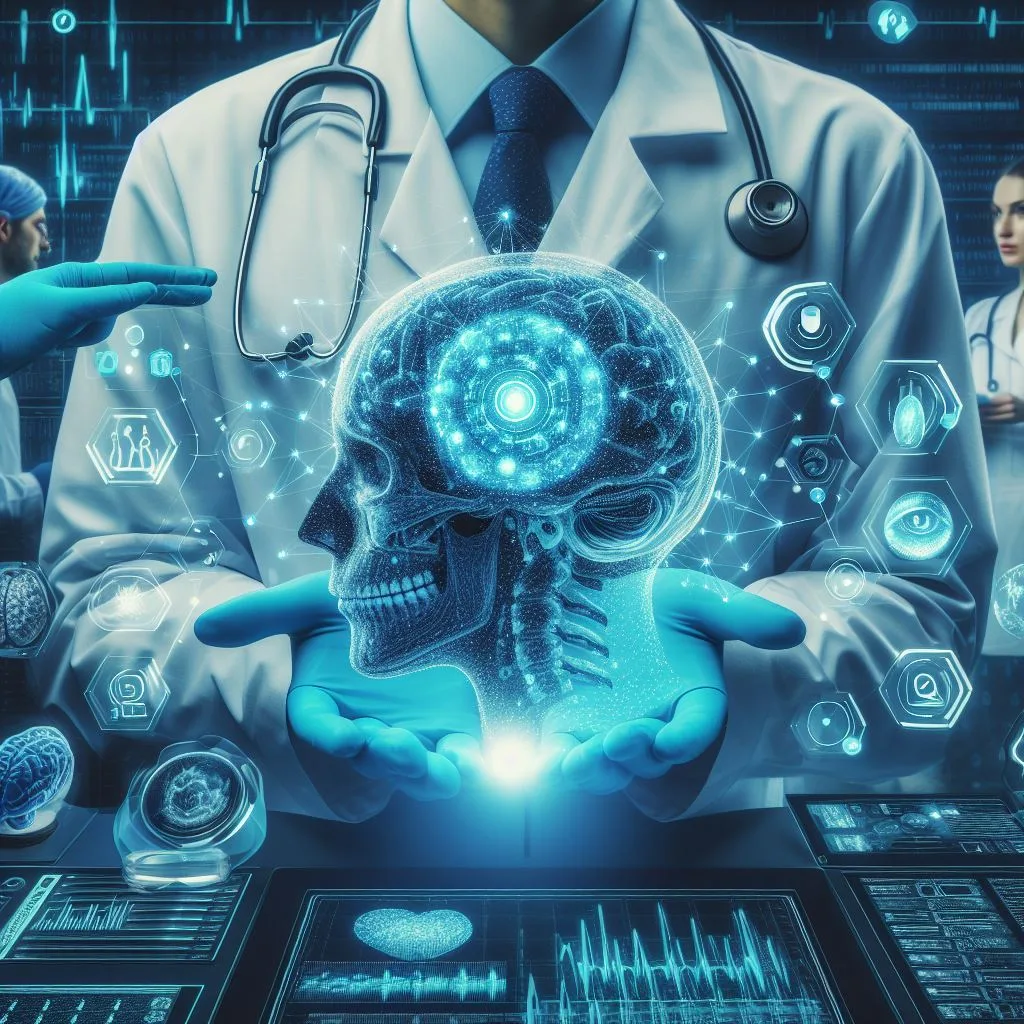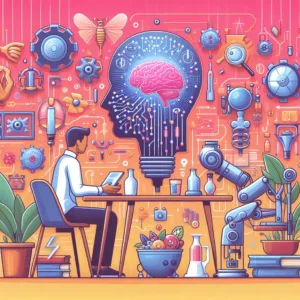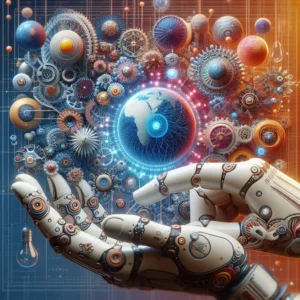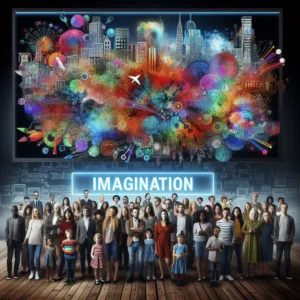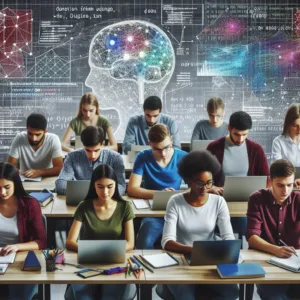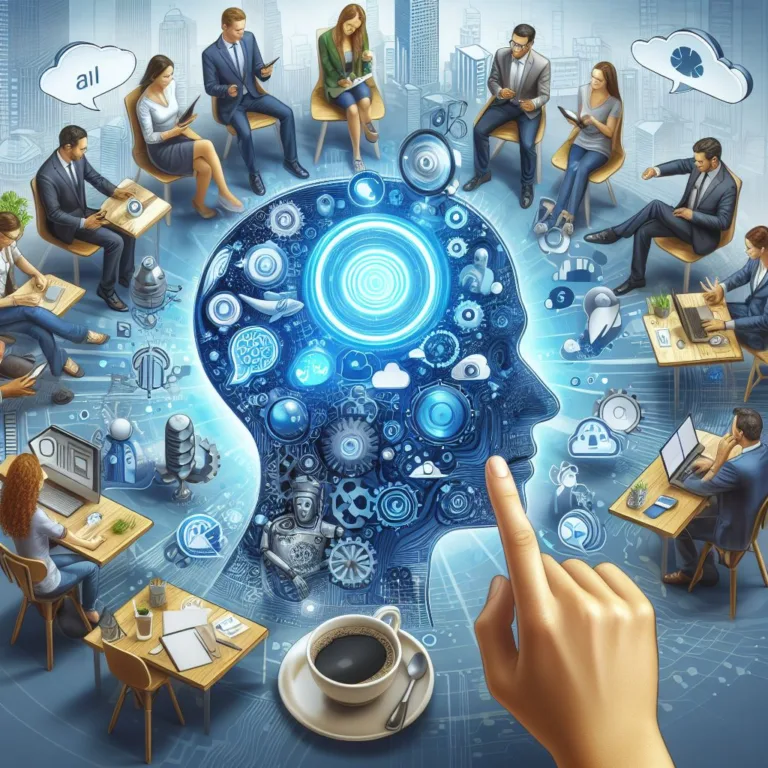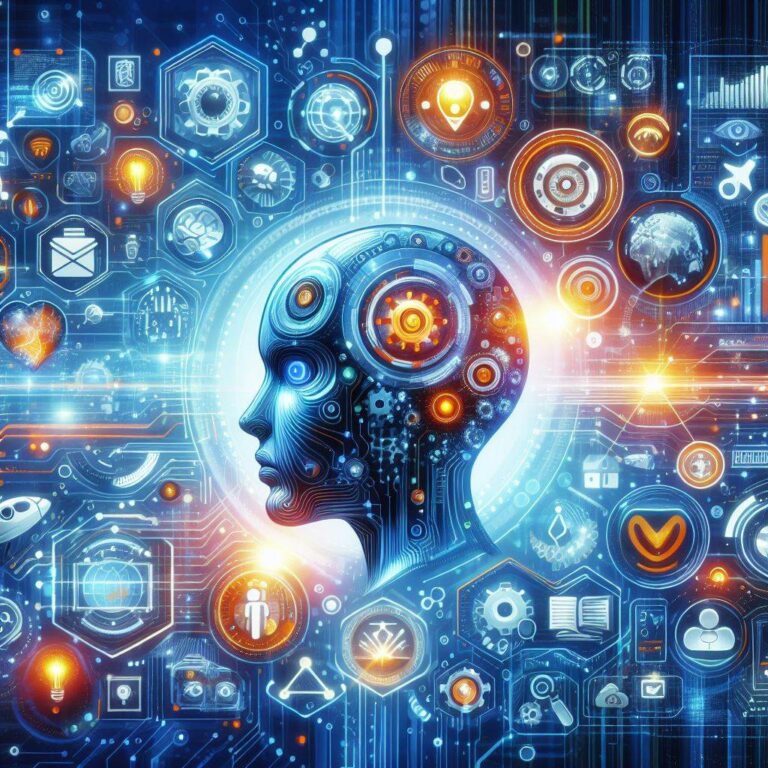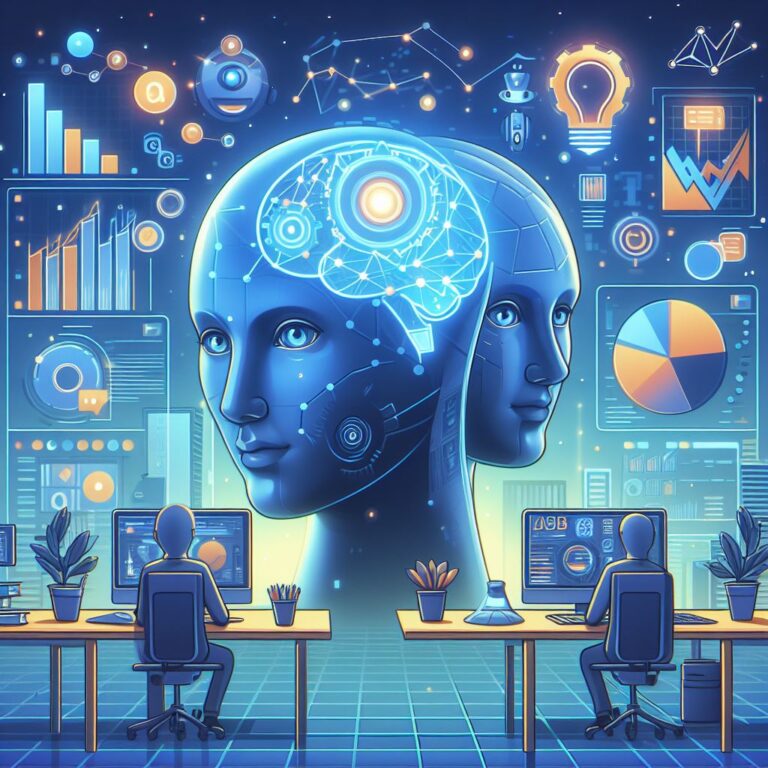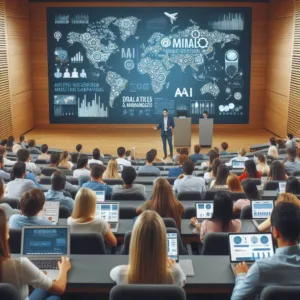Welcome to AI healthcare innovation our online journal post exploring the groundbreaking crossroads of AI and healthcare innovation. In the contemporary rapidly evolving healing landscape, artificial intelligence (AI) is transforming the way we approach disease and treatment. This post delves into the transformative impact of AI healthcare novelty, examining how state-of-the-art algorithms and machine learning are changing patient care delivery. Join us as we explore new advancements in AI-driven sciences and their profound associations for improving healthcare outcomes in general. From enhancing demonstrative accuracy to personalizing treatment approaches, find how AI is driving novelty and ushering in a new cycle of healthcare excellence.
Enhancing Medical Diagnostics Through AI Technology
Harnessing AI healthcare innovation for Enhanced Diagnostic Accuracy
With the unification of artificial intelligence (AI) into medical disease, healthcare providers are witnessing an example shift in diagnostic accuracy. AI-stimulated algorithms can sift through colossal amounts of medical data accompanying lightning speed, recognizing patterns and anomalies that might conceal human detection. This level of computational reasoning not only expedites the diagnostic process but also embellishes accuracy by minimizing the border of error.
Streamlining Diagnosis Accompanying AI-Powered Tools
AI-powered diagnostic forms are streamlining the diagnosis of differing medical conditions, from coarse ailments to complex afflictions. By analyzing medical representations, such as X-beams and CT scans, AI algorithms can highlight abnormalities and support invaluable insights to radiologists and added healthcare professionals. These forms empower clinicians to make more conversant decisions, chief to earlier detection, more exact diagnoses, and improved patient consequences.
Empowering Healthcare Professionals and Patients Alike
The incorporation of AI technology into healing diagnostics empowers two together healthcare professionals and patients. Clinicians can influence AI-driven insights to form timely and correct diagnoses, leading to more effective situation plans. Patients benefit from faster diagnoses, personalized situation approaches, and ultimately, better health effects. As AI continues to develop, its role in improving diagnostic veracity is poised to revolutionize healthcare transfer and improve patient care on a worldwide scale.
Revolutionizing Treatment Approaches with AI healthcare innovation
Transforming Patient Care Through AI-Driven Treatments
The healthcare countryside is undergoing a profound renewal with the unification of artificial intelligence (AI) into treatment approaches. AI-stimulated solutions are transforming how healthcare professionals give care, from diagnosis to situation planning and beyond. By controlling the power of machine intelligence algorithms, treatment approaches are becoming made-to-order, precise, and effective than ever before.
Personalized Treatment Plans Tailored to Individual Needs
AI technology allows healthcare providers to create personalized situation plans that cater to each patient’s singular needs and characteristics. By analyzing ample amounts of patient data, containing medical history, genetic news, and lifestyle determinants, AI algorithms can identify optimal situation strategies. This personalized approach guarantees that patients accept the most effective situations while minimizing potential aftereffects and complications.
Optimizing Treatment Outcomes Through Predictive Analytics
In addition to personalized situation planning, AI-compelled predictive analytics play an important role in optimizing situation outcomes. By analyzing patient dossiers in real periods, AI algorithms can predict disease progress, anticipate complications, and recognize opportunities for invasion. This proactive approach allows healthcare providers to mediate early, potentially forbidding adverse outcomes and reconstructing overall patient outcomes.
Empowering Healthcare Providers to Deliver Quality Care
By transforming treatment approaches, AI technology empowers healthcare providers to give quality care that is to say tailored to the needs of each patient. With AI-driven forms and insights at their disposal, clinicians can create more informed resolutions, optimize treatment methods, and ultimately, better patient outcomes. As AI continues to advance, allure’s role in transforming treatment approaches in healthcare will only continue to evolve, ushering in a new stage of personalized medicine.
The Role of Artificial Intelligence in Precision Medicine
Advancing Precision Medicine Through AI Technology AI healthcare innovation
The crossroads of artificial intelligence (AI) and precision cure are driving life-changing advancements in healthcare. AI technology plays an important role in resolving vast amounts of patient data, containing genomic information, healing imaging, and clinical records, to tailor situations to individual patients. By controlling the power of AI algorithms, precision cure approaches are becoming more mean, effective, and personalized than ever before.
Leveraging Genomic Insights for Targeted Treatments
One of the key contributions of AI in accuracy medicine is its talent to analyze genomic dossiers and identify molecular signs associated with distinguishing diseases. By understanding the genetic cosmetics of individual patients, healthcare providers can expand targeted treatments that address the latent mechanisms of ailment. This precision approach minimizes trial and error in situation selection, superior to better outcomes and improved patient delight.
Enhancing Clinical Decision-Making with AI-compelled Insights
In addition to genomic analysis, AI technology embellishes clinical administration by providing actionable insights arising from comprehensive patient dossier. AI algorithms can identify correlations, patterns, and flows within patient datasets, authorizing healthcare providers to make more informed resolutions about diagnosis, forecast, and treatment selection. These AI-compelled insights authorize clinicians to deliver personalized care that is to say tailored to the particular needs of each patient, ultimately improving situation outcomes and features of life.
Paving the Way for Personalized Healthcare
As AI continues to advance, allure’s role in accuracy medicine will continue to extend, paving the habit for personalized healthcare on a global scale. By leveraging AI electronics to analyze and define complex patient data, healthcare providers can unlock new intuitions into disease devices, develop innovative situation strategies, and enhance patient outcomes. The integration of AI into accuracy medicine shows a significant step forward in the search to deliver embodied, effective, and patient-centric care.
Leveraging AI Solutions to Optimize Patient Care in Healthcare
Transforming Patient Care Through AI Solutions AI healthcare innovation
In the contemporary’s healthcare landscape, the unification of artificial intelligence (AI) solutions is transforming patient care delivery. By controlling the power of AI electronics, healthcare providers can optimize various facets of patient care, from diagnosis and situation to ongoing monitoring and support. These AI-compelled solutions enable clinicians to deliver made-to-order, efficient, and effective feel-inclined patients across the sphere.
Improving Diagnosis and Treatment Planning with AI Algorithms
One of the basic benefits of leveraging AI solutions in healthcare is the improvement of disease and treatment preparation. AI algorithms can analyze complex medical dossier, including image scans, laboratory tests, and patient records, to assist clinicians in making accurate and timely diagnoses. Furthermore, AI-compelled decision support structures can recommend optimum treatment plans based on evidence-located guidelines and patient-distinguishing factors, enhancing the feature of care and reducing the risk of healing errors.
Enhancing Patient Engagement and Outcomes Through AI-compelled Tools
In addition to improving clinical accountability, AI solutions are improving patient engagement and consequences by providing personalized, proactive care. AI-stimulated virtual helpers and chatbots enable patients to approach healthcare information, schedule assignments, and receive prompt reminders and follow-up care education. Moreover, AI-driven predicting analytics can recognize patients at risk of antagonistic events or obstacles, allowing healthcare providers to intervene early and avert avoidable hospitalizations or readmissions. By leveraging AI resolutions, healthcare organizations can advance patient care delivery, improve energy outcomes, and embellish the overall patient experience.
AI healthcare innovation
| Aspect of Revolution | Description |
|---|---|
| Diagnosis and Treatment | AI algorithms analyze medical data, such as imaging scans and patient records, to assist clinicians in accurate diagnosis and treatment planning. |
| Personalized Medicine | AI technology enables personalized treatment approaches tailored to individual patient characteristics, including genetic makeup, lifestyle factors, and medical history. |
| Predictive Analytics | AI-driven predictive analytics identify patients at risk of adverse events or disease progression, allowing for proactive interventions and improved outcomes. |
| Virtual Assistants | AI-powered virtual assistants and chatbots provide patients with access to healthcare information, appointment scheduling, and follow-up care instructions, enhancing patient engagement and satisfaction. |
| Data Analysis | AI algorithms analyze vast amounts of healthcare data to uncover insights, trends, and patterns, facilitating evidence-based decision-making and research advancements. |
| Workflow Optimization | AI solutions streamline administrative tasks, automate repetitive processes, and optimize healthcare workflows, reducing operational costs and improving efficiency. |
| Telemedicine | AI technology supports telemedicine platforms by enabling remote consultations, diagnostic imaging interpretation, and remote patient monitoring, expanding access to healthcare services. |
Embracing the Future: AI’s Impact on Healthcare :
In conclusion, the unification of artificial intelligence (AI) into healthcare represents a transformational leap forward in improving diagnosis and situation. AI-driven sciences are revolutionizing how healthcare providers approach patient care, from embellishing diagnostic accuracy to personalizing situation plans. By leveraging AI algorithms to analyze vast amounts of healing data, clinicians can form more informed decisions, superior to earlier detection, more exact diagnoses, and improved treatment effects. Furthermore, AI-powered predicting analytics and virtual helpers empower both healthcare artists and patients, enabling full enthusiasm interventions and enhancing the overall patient occurrence. As AI continues to progress, its role in healthcare novelty will only continue to expand, and begin a new era of personalized cure and improved healthcare transmittal on a global scale.


